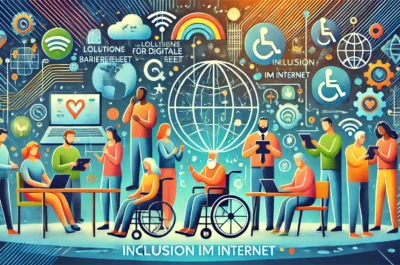
Das nächste Jahr wird in vielerlei Hinsicht für die Online-Bürgerrechte und -Freiheiten auf der ganzen Welt entscheidend. Tim Jones von der Electronic Frontier Foundation hat jetzt zwölf Trends aufgeschrieben, denen er im kommenden Jahr eine bedeutende Rolle zuschreibt.
Cory Docotorow, ebenfalls EFF-Aktivist, sieht darin Stoff für 50 neue Science-Fiction-Romane versteckt.
Ich als Medienfrau finde natürlich diesen Punkt besonders interessant:
Books and Newspapers: .TXT is the new .MP3
Since 2000, the music industry has most spectacularly flailed (and failed) to combat the Net’s effect on its business model. Their plans to sue, lock-up and lobby their way out of their problem did nothing to turn the clock back, but did cause serious damage to free speech, innovation and fair use.
These days, the book and newspaper industries are similarly mourning the Internet’s effect on their bottom line. In 2009, Rupert Murdoch changed the tone of the debate when he called those who made fair use of his papers‘ content „thieves“. We think 2010 and beyond will see others in the print world attempt to force that view, and break the fair use doctrine by lobbying to change accepted copyright law, challenging it in the courts, or by placing other pressures on intermediaries.
A cluster of similar battles around user control are also gathering around e-reader products like Kindle and Google Book Search, many of which rewrite the rules for book ownership and privacy wholesale.
So, in 2010, will the printed word step smartly into the digital future, or will it continue to stay stuck in the denial and bargaining phase that dominated digital music’s lost decade?
Verführerisch wäre es an dieser Stelle, vorherzusagen, wie wahrscheinlich es doch sei, dass die Printbranche sich ähnlich ungeschickt gebahren könnte, wie die audiovisuelle Unterhaltungsbranche – doch die EFF-Liste ist noch viel länger und zu interessant, um sich an einer solch ausgelutschten Thesen festzusaugen.
Weiteres spannendes Thema auf Jones Liste: Internetzensur. Autoritäre Regime zensieren natürlich ohnehin schon, jetzt ziehen aber Australien und Europa (schönen Dank, Frau von der Leyen) nach – beste argumentative Munition für Iran und Co, die sich hübsch darauf zurückziehen können, nur das zu tun, was alle anderen auch machen oder zumindest vorhaben. Interessant dürfte ja auch werden, was aus von der Leyens Zugangserschwernis-Stoppschildern wird…
Weiter auf der EFF-Liste: Bedrohung der Privatsphäre (location-privacy) durch die ewig funkende Gadget-Flut in unseren Hosentaschen und die bevorstehende Zuspitzung in Fragen der Netzneutralität. Und zwei weitere Themen, die in meinen Augen noch lange nicht ausreichend und breit genug diskutiert werden (zumindest hierzulande):
9. Social Networking Privacy: Something’s Got To GiveFor some, social networking sites are the Internet. Facebook now has over 350 million accounts — roughly the same as the total number of Internet users worldwide a decade ago. That means that the bad guys who were exploiting security weaknesses in the wider Net in the last decade will now turn in force on the bigger networking sites. And by bad guys, we mean everyone from criminals, to unethical data-mining companies, to ISPs who can’t resist snooping on that remunerative personal data passing down their pipes, to governments seeking new ways to track their citizens.
Will a major privacy scandal or two fix the social networking sites‘ casual attitude to their customers‘ personal data? Will new laws? Or will technologists and increasingly sensitive Net users find a their own way to protect their privacy?10. Three Strikes: Truth and Consequences
In countries across the globe, the entertainment industry has been pushing for laws requiring ISPs to terminate their users‘ connection at the whim of the entertainment industry. In 2009, they got their wish — in France and South Korea, at least. This year will see the spin battle over what is actually happening in those countries.
Expect media industry reports describing amazing local declines in filesharing, aimed at policymakers in other nations considering the same. And look out for local press reports from these three strikes ground zeroes, documenting the calamitous consequences of disconnections, the lack of financial return to working artists, and the political blowback for the politicians who championed these unjust laws
Gerade die Three-Strikes-Thematik hat sich im letzten Jahr als sehr sperrig erwiesen und wenig Aufmerksamkeit auf sich gezogen – tragisch, angesichts der Tragweite der Maßnahmen. Da werden es alle neuen Entwicklungen im Social Networking-Bereich wesentlich leichter haben, öffentlich und ausgiebig diskutiert zu werden.
Bildnachweis: mzacha
Artikel per E-Mail verschicken
Schlagwörter: 2010, EFF, Online-Bürgerrechte




1 comment